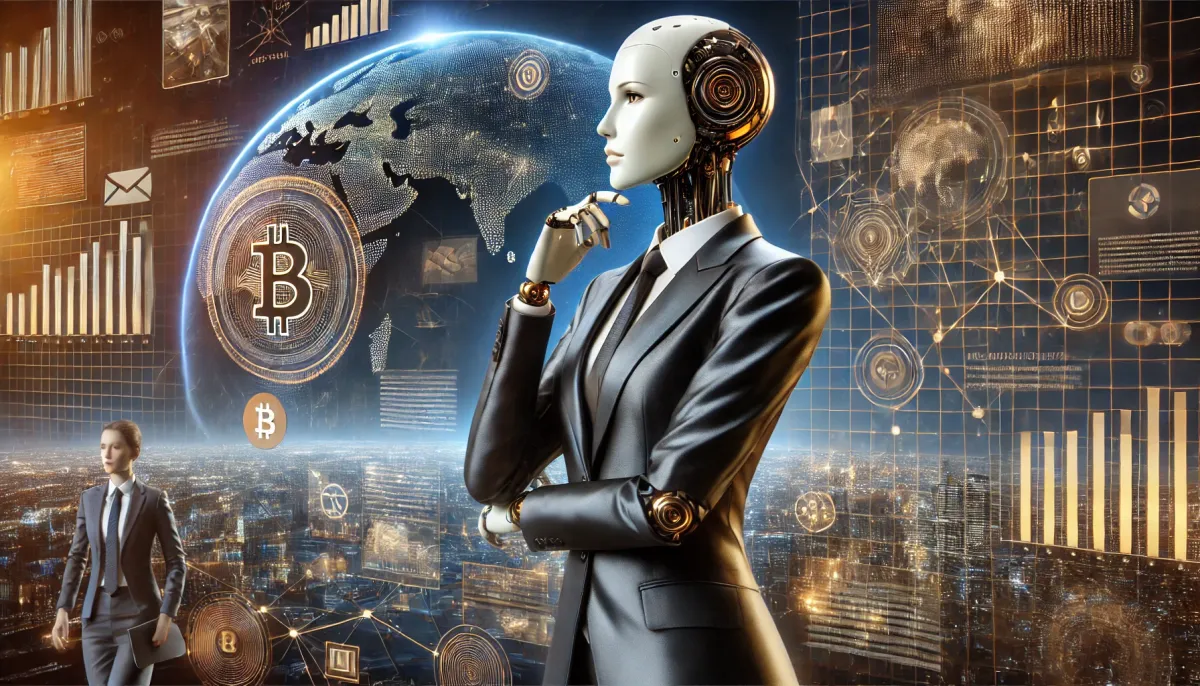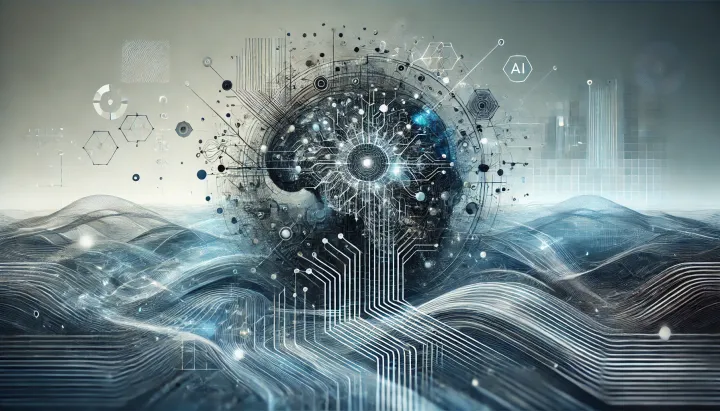AI Decentralization & Bitcoin’s Future
On March 28, 2025, the What is Money Show with Matt McDonagh examined how advanced AI - from deep and reinforcement learning to decentralized architectures - can transform healthcare, finance, and Bitcoin’s protocol.

- My 'briefing notes' summarize the content of podcast episodes; they do not reflect my own views.
- They contain (1) a summary of podcast content, (2) potential information gaps, and (3) some speculative views on wider Bitcoin implications.
- Pay attention to broadcast dates (I often summarize older episodes)
- Some episodes I summarize may be sponsored: don't trust, verify, if the information you are looking for is to be used for decision-making.
Summary
On March 28, 2025, the What is Money Show with Matt McDonagh examined how advanced AI - from deep and reinforcement learning to decentralized architectures - can transform healthcare, finance, and Bitcoin’s protocol. The discussion highlighted the need for rigorous validation, enhanced security in decentralized systems, and proactive ethical frameworks. These insights underscore the strategic importance of integrating Bitcoin with AI to create more transparent and resilient economic models.
Take-Home Messages
- AI Diagnostic Validation: Rigorous testing is essential to ensure AI-driven healthcare systems deliver accurate, personalized outcomes.
- Reinforcement Learning Efficiency: Optimizing adaptive learning models can significantly enhance decision-making in dynamic environments.
- Decentralized Security: Strengthening decentralized AI architectures is crucial for protecting data while enabling innovation.
- Synthetic Consciousness Monitoring: Developing clear indicators is necessary to address ethical concerns surrounding emerging AI intelligence.
- Economic Transformation: Integrating decentralized protocols with AI can redefine financial systems by boosting transparency and resilience.
Overview
Matt McDonagh explores the evolution of AI, detailing how techniques like deep and reinforcement learning are reshaping sectors such as healthcare and finance. He illustrates these concepts with relatable analogies and real-world examples, emphasizing the tangible impact of AI innovations. The discussion connects technical advancements to broader societal shifts, linking AI’s capabilities to the decentralized nature of Bitcoin.
In healthcare, a case study demonstrates how AI-driven diagnostics and personalized treatments have already saved lives, underscoring the need for rigorous validation. This example highlights the potential of AI to transform patient care and reduce systemic costs. McDonagh stresses that integrating advanced data analysis can lead to more efficient and effective treatment strategies.
The podcast also delves into the debate between centralized and decentralized AI architectures. McDonagh explains how decentralized systems, enhanced by blockchain integration, promise improved data privacy, transparency, and innovation agility. He contrasts these with centralized models that, while powerful, pose risks related to data control and security.
Ethical considerations and the potential emergence of synthetic consciousness are recurring themes. McDonagh calls for the development of robust regulatory frameworks and clear ethical guidelines to ensure that AI’s rapid evolution benefits society. The conversation concludes by linking these technological shifts to broader economic transformations driven by decentralized protocols.
Stakeholder Perspectives
- Healthcare providers demand validated AI tools that enhance diagnostic accuracy and protect patient data.
- AI researchers focus on optimizing learning models and integrating blockchain for improved system resilience.
- Policymakers require clear ethical guidelines and regulatory frameworks to manage the rapid evolution of decentralized technologies.
- Financial stakeholders and Bitcoin proponents advocate for decentralized models to enhance transparency and reduce systemic risks.
- The general public and investors seek innovations that balance technological efficiency with privacy, security, and equitable growth.
Implications and Future Outlook
The podcast implies that AI-driven advances in healthcare can revolutionize diagnostics and personalized treatment, leading to improved patient outcomes and lower costs. These changes will require collaboration among clinicians, technologists, and regulators to ensure effective implementation and safety.
In the financial sector, integrating decentralized AI with Bitcoin may redefine economic models by reducing reliance on centralized institutions and enhancing transparency. Such shifts could democratize financial systems and foster more resilient, equitable market structures.
Ethical challenges, particularly around synthetic consciousness and data privacy, underscore the need for proactive regulatory reforms. Addressing these issues early can help mitigate societal risks and ensure that technological progress contributes positively to economic and social well-being.
Information Gaps
- How can AI-driven diagnostic systems be further validated to ensure consistent accuracy in personalized healthcare? Ensuring reliable diagnostics is crucial for patient safety and broader adoption.
- What methodologies can optimize reinforcement learning to accelerate decision-making in dynamic environments? Enhancing these models is key to improving operational efficiency and adaptive learning.
- How can decentralized AI architectures be secured against data breaches while maintaining innovation agility? Strengthening security in decentralized systems is vital for protecting sensitive information and fostering trust.
- What indicators can be developed to assess the emergence of synthetic consciousness in advanced AI systems? Clear metrics are necessary to guide ethical development and regulatory oversight.
- How can decentralized protocols like Bitcoin be integrated with AI to transform traditional economic systems? This integration could drive transparency and resilience, prompting further research and policy evolution.
Broader Implications for Bitcoin
Bitcoin as a Pillar for Decentralized Systems
Bitcoin may serve as a foundational asset that underpins the integration of decentralized AI systems, enhancing security and transparency. This could shift economic power away from centralized institutions and empower individuals through more resilient financial models. Broader adoption may redefine economic governance and promote more equitable market structures.
Catalyzing Global Innovation
The fusion of advanced AI with decentralized protocols could drive global innovation by facilitating secure, efficient information sharing. This synergy may lower entry barriers across industries, spurring rapid technological advancements and competitive markets. In the long run, such integration can accelerate a paradigm shift toward decentralized, user-empowered economic ecosystems.
Ethical and Regulatory Reforms
Emerging challenges like synthetic consciousness and data privacy require proactive ethical and regulatory responses. Establishing robust guidelines will be essential to harness AI’s benefits while mitigating potential risks. These reforms could serve as a blueprint for responsible innovation in a rapidly evolving technological landscape.



Comments ()